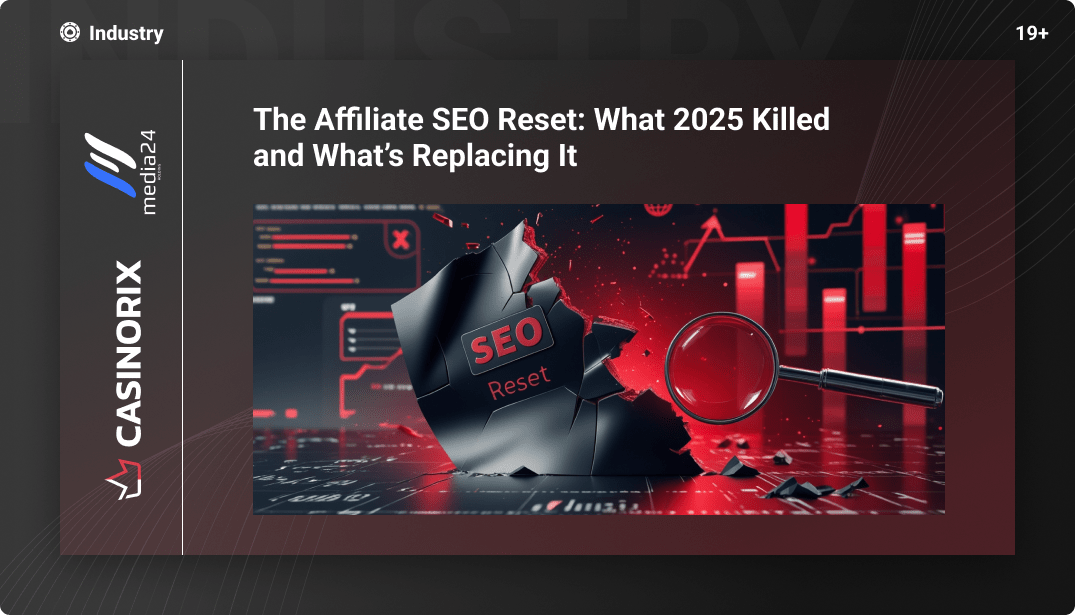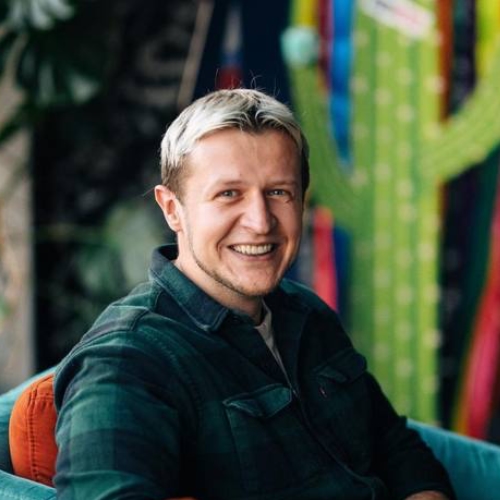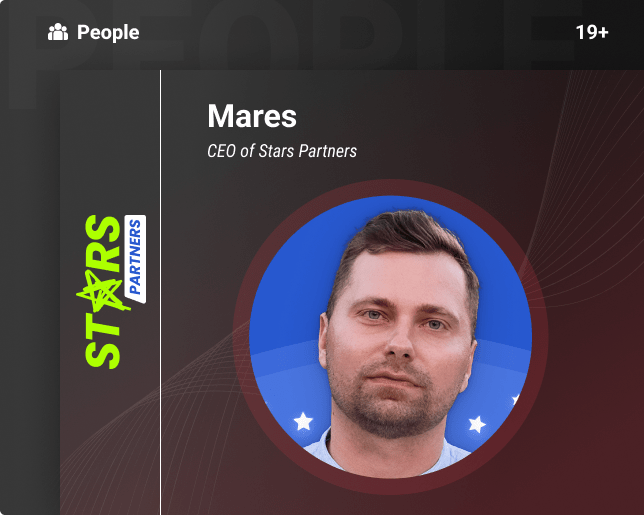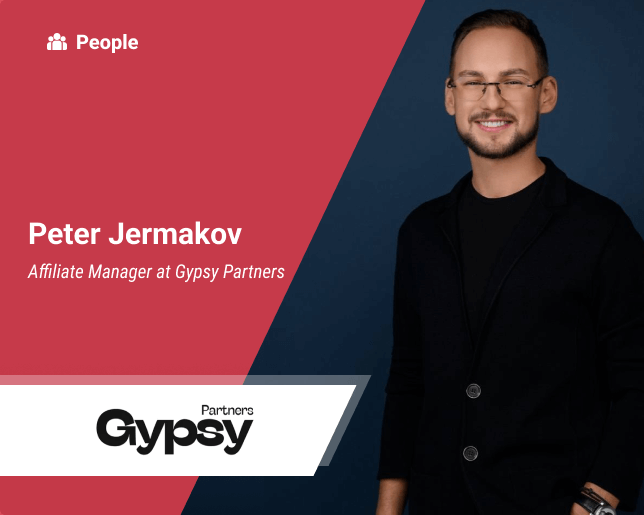
The Affiliate SEO Reset: What 2025 Killed and What’s Replacing It
The Year SEO Broke (Again)
2025 didn’t just bring another Google update – it flipped the script. AI summaries, no-click results, and a crackdown on shallow content reshaped how affiliate SEO works, or whether it works at all.
We spoke to two experts with very different perspectives: Martins Lasmanis, CEO of Media24 with over 18 years in SEO, and Jessica Millis, CEO at CasinoRIX, who saw affiliate SEO shift in real time.
Their answers reveal disagreements, shared frustrations, and one clear message: the old ways are done.
Was 2025 the year Google declared war on affiliate SEO or the year lazy content finally got caught?
Martins: I’d say 2025 was the year lazy content was finally exposed, not the year Google declared open war on affiliate SEO. Many sites tried to generate text with LLMs, just churning out lists or shallow content, and that gradually stopped working. The algorithms have gotten better at spotting things like a lack of originality and user value. AI-generated content might temporarily hit the top, but it’s a short-lived story – it drops quickly.
Jessica: Honestly, I’d say lazy content finally got what was coming. It’s not like Google suddenly woke up one day and decided to target affiliates – they’ve been signaling this for years. What changed is that AI-made filler content flooded the internet, and the bar just dropped too low. If your content wasn’t offering real value or original insights, it didn’t stand a chance. This year didn’t kill affiliate SEO – it just raised the standard.
AI summaries. No-click searches. Parasite SEO. Are we watching SEO evolve or erode?
Martins: I believe we’re seeing both an evolution and a partial erosion of classic SEO. AI summaries and zero-click searches are essentially the new reality. Yes, they take away clicks for simple informational queries, and that’s fine. It forces us to create content that is deeper than a short AI answer can provide. The goal now isn’t just to get on the first page, but to become the source that AI references.
Jessica: It’s definitely evolving, but in a way that feels brutal if you’re still doing SEO like it’s 2015. No-click results and AI summaries are frustrating, yes – but they’re also a wake-up call. We can’t rely on surface-level content anymore. If AI can answer it in one sentence, why should Google send traffic? So now, the challenge is to go deeper. Be the source, not the echo. It’s harder – but that’s the new game.
What triggered the reset and who’s been hit hardest?
Martins: In my opinion, the main trigger was the emergence and mass adoption of artificial intelligence in the search results. As soon as AI began to quickly and conveniently answer most queries, the need to manually write repetitive review articles and optimize them for keywords vanished. Those hit hardest were the ones relying on old methods: sites with mass-produced, unoriginal, or spun content, and parasite sites. In short, anyone whose business model was to “trick the algorithm” rather than “help the user” has suffered.
Jessica: The reset came from the shift in how users consume content – and how quickly AI caught up to replicate low-effort content. Sites that were built on scale rather than substance took the biggest hit. Especially those pushing recycled product reviews or listicles with no personal experience behind them. If your whole model was “publish more, faster,” you probably saw rankings tank. It’s not about quantity anymore – it’s about credibility and uniqueness.
What Died And Deserved To
Which legacy SEO tactics finally stopped working and why were we still using them in 2025?
Martins: In 2025, many were still using old tricks because it seemed “faster” or simply out of habit. But some things truly don’t work anymore. For instance, content written “just to check a box” with an AI tool has dramatically lost its effectiveness. The same “article spinners” that once yielded results are now quickly flagged by bots and completely devalue a site. Likewise, over-optimization has stopped working. The idea of “we’ll focus on DA or some other third-party metric instead of the page’s actual value” has also been dead for a long time.
Jessica: Honestly, a lot of us stuck with outdated tactics longer than we should’ve – mostly because they were “safe” and used to deliver predictable results. But the usual suspects are finally done: thin content, article spinning, over-optimized keyword stuffing. And relying on tools that spit out basic SEO checklists without strategy – that’s a dead end now. Google got too good at spotting the difference between “content that’s optimized” and “content that’s valuable.”
Is mass-produced “best casino bonuses” content still worth publishing?
Martins: I don’t think so, and that applies to any topic, not just casinos. Mass-producing content is a direct path to losing trust and rankings. Search engines aim to give users the best experience, not ten identical lists generated by AI. If you want to be at the top, your content must demonstrate genuine expertise, experience, and original thought.
Jessica: Not if you care about staying relevant. That type of content – written in bulk with minimal thought – used to work, but it’s basically digital noise now. The SERPs are flooded with the same phrases and formats. If you want to stand out, you need to actually know the space and speak from experience. Readers (and Google) can smell the difference between fluff and substance a mile away.
Are affiliates too reliant on copy-paste SEO checklists and outdated audit tools?
Martins: I’d say the problem is deeper than that. It’s not so much about the tools as it is about the mindset. A reliance on any kind of “copy-paste template” is a sign of lazy marketing. If an affiliate isn’t creating quality content themselves and is just generating it with AI, they can’t be trusted. That kind of content poses a high risk to the brand, as it can contain false information.
Jessica: Definitely. Tools and checklists have their place, but they’re not a strategy. If all you’re doing is following a playbook without thinking critically, you’re already behind. SEO isn’t a paint-by-numbers game anymore – it’s closer to product development now. You have to understand the audience, build something valuable, and then make sure it’s discoverable. That takes more than just ticking boxes.
What’s Actually Working – and Why No One Wants to Hear It
Why does SEO now feel more like building a brand than gaming the algorithm?
Martins: Generally, the whole approach has changed. Gaming the algorithm is a short-term tactic; building a brand is a long-term strategy. A brand gradually displaces simple SEO templates: if people are talking about you and linking to you authentically, you’re alive in the eyes of both people and algorithms. And that’s hard, because everyone got used to “do the optimization, get to the top immediately,” but it doesn’t work like that anymore.
Jessica: Because that is what it’s becoming. If you’re not building a brand that people remember, trust, and talk about – you’re invisible. The days of winning through technical hacks or backlinks alone are fading. Real authority comes from recognition. And while that’s a longer road, it’s also way more defensible. Brand mentions, user loyalty, community – those are the new ranking signals, whether we like it or not.
Is E-E-A-T the new SEO weapon or just another Google mystery box?
Martins: It’s neither a weapon nor a direct ranking factor – it’s more of a north star for creating quality work that helps build reader trust. When you showcase unique insights, share your own hands-on experience, add useful tools, provide detailed instructions, and don’t just write for the sake of writing – that is the essence of E-E-A-T. This is what leads to an increase in trust, natural mentions, and links.
Jessica: To me, it’s more of a framework – not a weapon or a ranking factor per se. E-E-A-T is Google’s way of nudging us toward doing things right. Share your firsthand experience, show proof of expertise, back it up with real value. It’s not about gaming E-E-A-T – it’s about actually earning trust. And if you do that well, rankings tend to follow naturally.
Has the niche affiliate model finally gone from “cute side project” to the only real strategy?
Martins: I wouldn’t say it’s the only strategy that works, but niches and deep expertise genuinely have the best chance of breaking through right now. Affiliates who create in-depth content earn both mentions and citations. Even if direct traffic is lower, the brand itself gets promoted through other channels, and AI now often pulls data from these kinds of sources.
Jessica: It’s not the only way, but it’s definitely the most sustainable path right now. Going deep in a niche – where you actually have experience and insights – gives you an edge AI can’t fake. Plus, niche brands are easier to build community around. They might start small, but they grow strong roots. If you’re just chasing volume without depth, you’re far more exposed to every algorithm shift.
What No One’s Saying (But Should Be)
Is it time to admit that relying on SEO traffic alone is irresponsible?
Martins: Yes, absolutely. Relying on a single traffic channel is incredibly risky. Success today is about a multi-channel approach. You need to be where your audience is: on social media, in niche communities, on YouTube. Diversification is the key to stability.
Jessica: Oh, 100%. If SEO is your only channel, you’re playing with fire. Platforms change, rules change – traffic can disappear overnight. Building an audience outside of Google is no longer optional. Whether it’s through newsletters, communities, or social media – you need to own at least part of your distribution. It’s the only real way to future-proof your business.
Are affiliates too focused on Google and ignoring their actual users?
Martins: Unfortunately, that’s often the case. I’ve seen sites write content for “search engines,” not for people, and in doing so, they lose that deep connection with the reader. People aren’t just looking for great “SEO-optimization”; they’re looking for answers to their real questions, expertise, and practical advice. If a site’s only distinguishing feature is its attempt to please an algorithm instead of its users, it will be quickly forgotten and drop from the top rankings. What’s crucial now is giving people what they actually came for.
Jessica: That’s still a massive problem. When content is written for search engines, it always ends up flat. But when you write for people – really thinking about what they need, how they think, and what questions they’re actually asking – it resonates. The irony is, that’s also what Google rewards now. So focusing on users isn’t just better for them – it’s smarter SEO.
If AI search takes over, is the future more about direct channels (email, community, retention) than ranking?
Martins: Without a doubt. The future is in diversification and building your own independent channels: private communities on Discord or Telegram, YouTube channels, a loyal social media following. These are assets that are less vulnerable to shifts in search algorithms. This doesn’t mean ranking will disappear. It will remain important, but it will no longer be the sole measure of success.
Jessica: Yes – and honestly, it already is for a lot of us. SEO is still powerful, but it’s no longer the whole funnel. Building a list, fostering a real community, getting people to come back because they trust you – that’s what creates long-term stability. If you’re not investing in direct access to your audience, you’re going to feel every Google update like a punch in the gut.
Reset, Rebuild, or Retire
If 2025 proved anything, it’s this: affiliate SEO is no longer about gaming the system. Mass-produced content, keyword-stuffed pages, and checklist-driven strategies are gone. What’s replacing them is harder – but stronger.
As CasinoRIX experts have seen firsthand, the future belongs to brands that earn trust, deliver real value, and stop chasing short-term rankings. Whether you’re building niche authority, fostering direct audiences, or becoming a go-to source for AI-driven search, the playbook has changed.
Reset your mindset. Rebuild your strategy. Or risk being left behind.
Other news:
Introducing CasinoRIX: Your Trusted Partner for Online Gambling in Canada and Ontario
Casino enthusiasts, get ready to embark on an extraordinary gaming journey as CasinoRIX, the ultimate destination for online gambling, launches in Canada and Ontario. With a focus on keeping gambling straightforward a...
BetCare and CasinoRIX Come Together to Enhance Players User Experience
The team at CasinoRIX is proud to announce that we’re partnering up with BetCare! These kinds of partnerships let us exchange valuable information and improve the player experience.
From Time-Sensitive Bonuses to Global Expansion: Stars Partners’ Vision for 2025
CasinoRIX had the opportunity to converse with Mares, CEO of Stars Partners, to enhance our understanding of the company’s perspective, existing strategies, emerging trends, and their implications for future partner...
Stay Ahead in Affiliate Marketing: Proven Techniques for Top SEO/PPC Rankings and Publisher Selection
iGaming specialists at CasinoRIX sit down with Peter Jermakov, Affiliate Manager at Gypsy Partners, to discuss his journey in the industry, his approach to building successful partnerships, and the strategies he uses ...




